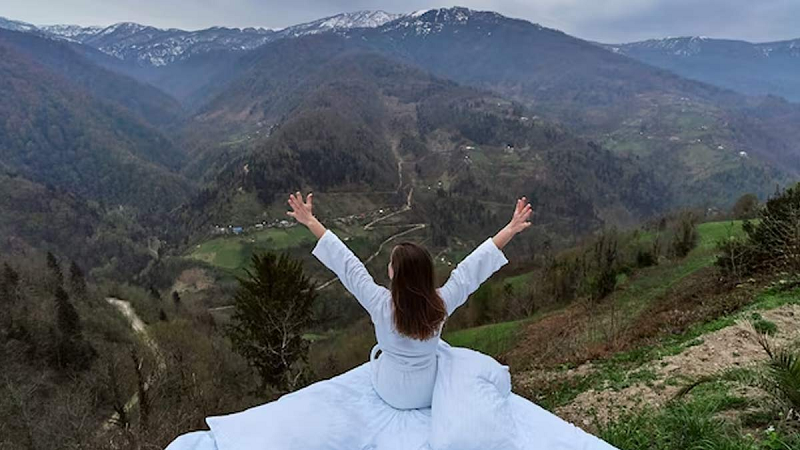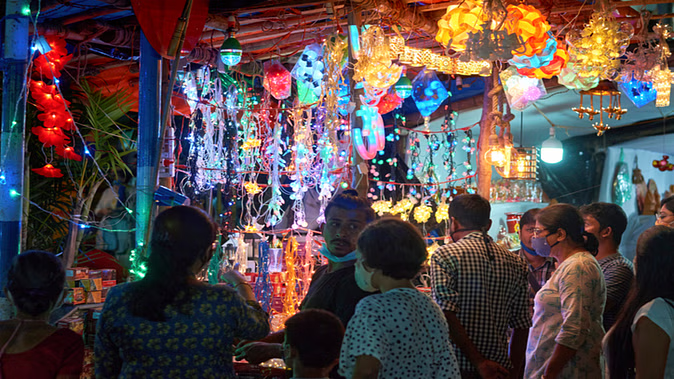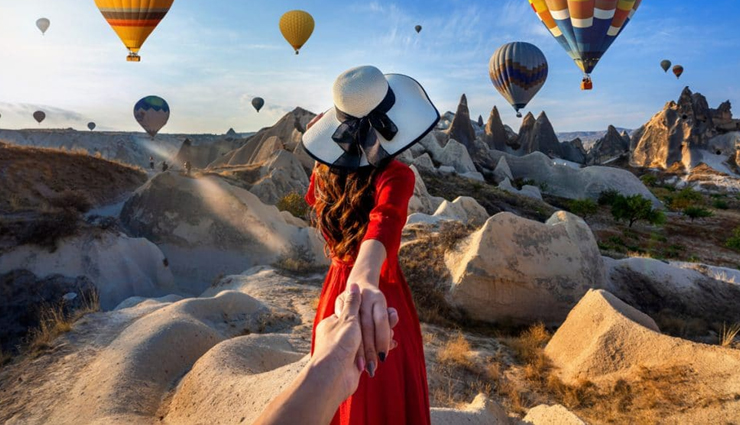India is known for its spiritual importance where you will find small and big temples on every street corner. People's faith in God gives them positivity and protects them from negative forces. People reach the temple satisfied with this positivity. But do you know that there are some temples in the country where people are afraid to go and the reason behind this is the haunted activities happening here or the power of spirits or supernatural elements? Today we are going to tell you about such temples of the country, where even the devotees scream out of fear. Let's know about these temples...

Devji Maharaj Temple, Madhya Pradesh
Do you know that 'Bhoot Mela' is organized every year in this temple? Yes, the Devji Maharaj Temple in Madhya Pradesh is famous for its Bhoot Mela. This fair is held on the full moon night and it is believed that people come to this temple to get rid of these spirits. The Babas and Sadhus of this place sweep people with brooms to drive them away. Some people claim that spirits are also seen around the temple here, they also feel strange there. Here people keep camphor on their palms to get rid of ghosts.
Kiradu Temple, Rajasthan
We all know that the Indian state of Rajasthan is known for one of the most beautiful and amazing forts, palaces, palaces, and buildings, but in this state, Kiradu Temple in Barmer is such a place where one can visit thousands of places before going alone. Bar thinks. Yes, it is said that this ancient and famous temple is cursed by a sage, due to which the sun is afraid to set or go alone. There is a folk tale that once a sadhu had come to visit his disciples and for some time the sadhu went to some other place. When he returned, many of his disciples had died. After this incident, the monk cursed that whoever comes here for a visit will not return alive.
Chandi Devi Temple, Haridwar
Chandi Devi is considered to be the violent form of the Goddess and this temple is dedicated to her. It is believed that people visiting this temple during Navratri get influenced by this form of the Goddess, as the soul is at its most powerful during this time. On other days, people come here to get rid of the spirit.

Ghost Temple, Uttar Pradesh
You must have come to know from the name of this temple how scary this place would be. Yes, one of the largest states of the country, located about 50 km from Kanpur city of Uttar Pradesh, is a Gupta-period temple that is considered to be a ghost temple. It is said that there is no idol of any deity in this temple and one day suddenly some sound started coming from here. After this incident, worship started here during the day, but no one comes here to worship in the evening. Many people believe that this temple is the abode of ghosts.
Harsu Bhram Temple, Bihar
There is an interesting story behind this temple in Bihar, it is believed that this temple was built by a Brahmin man who wanted people to worship him. His spirit continues to roam here even today and people come here and request him to get rid of the soul. The temple is located in a very hidden place, so you can take the help of the local people to reach there.
Dattatreya Temple, Madhya Pradesh
The Dattatreya temple located in Madhya Pradesh, which is called the heart of India, is included in the ghost temple. There is a very popular legend about this temple that when people enter this temple, they feel that their body has been captured by someone. There is another folktale that no devotees come here for darshan on the day of Amavasya, because ghosts reach here on this day. Another belief is that people who reach this temple abuse. No one dares to go here as soon as the sun sets.

Mehandipur Balaji Temple, Rajasthan
This is probably the only temple in the country where people come for exorcism. Mehandipur Balaji Temple in Rajasthan is a place that is not for the faint of heart. The temple is dedicated to Lord Hanuman, who is known as a protector. Here people tie themselves with chains and beat themselves to get rid of evil spirits. Not only this, but here people also pour boiling water on themselves. People do not have to carry the prasad after leaving the temple.










